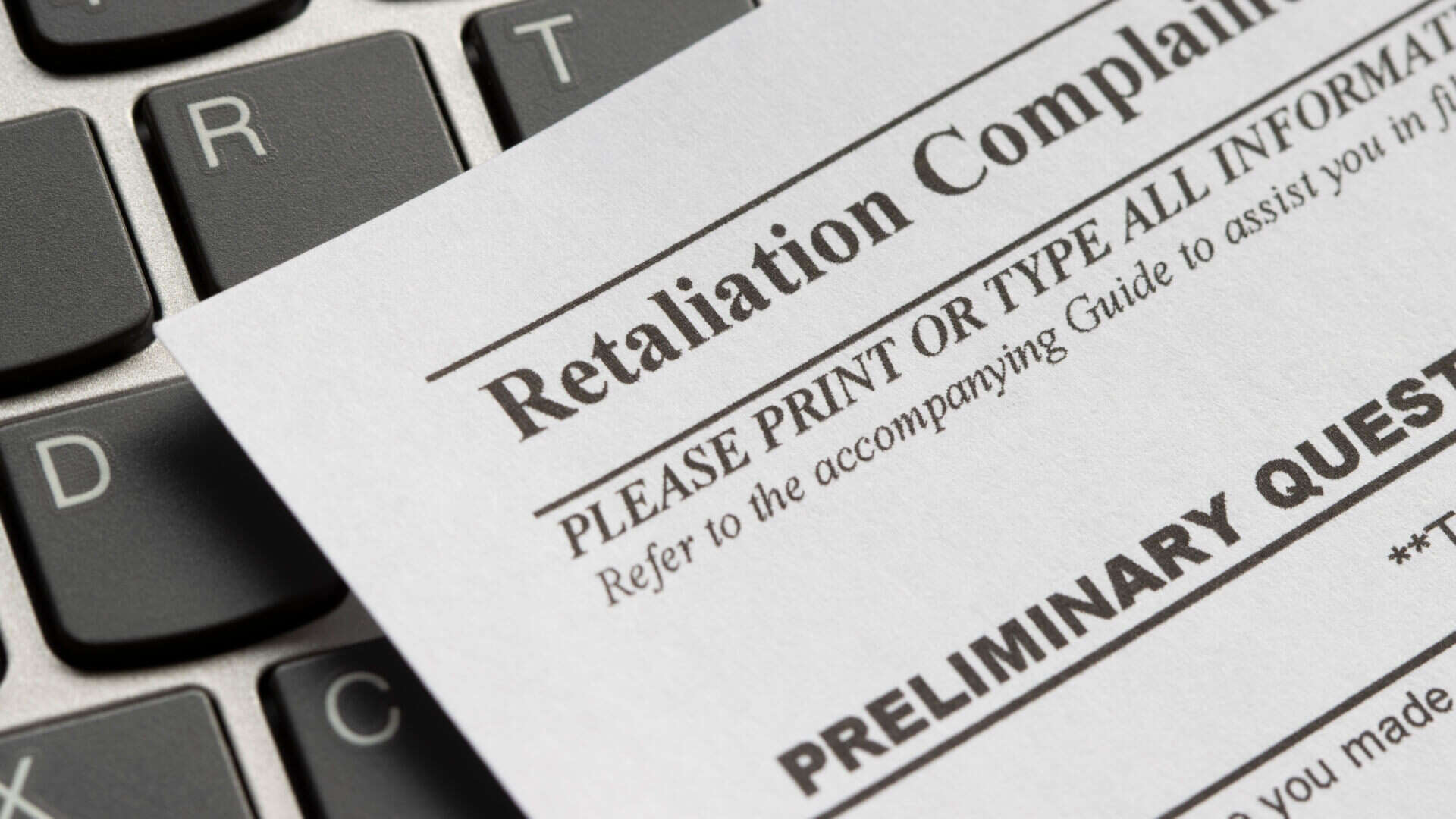Workplace retaliation is the most common form of discrimination in the workplace, particularly in federal workplaces, as reported by the Equal Employment Opportunity Commission (EEOC). This means that discrimination in the workplace is often some sort of punishment for the victim. Specifically, it’s a punishment that targets your protected characteristic, a characteristic that has nothing to do with your character. No worker deserves to be treated this way.
One of the worst things about workplace retaliation and the discrimination that comes with it is that you don’t often know that it’s happening. Examples of retaliation are not always as obvious as being verbally or physically harassed. Sometimes, they’re more subtle but can have an equal effect on your mental and physical health.
If you have the slightest feeling that you may be experiencing retaliation at the hands of your employer or co-worker, do not hesitate to contact the retaliation attorneys at Barrett & Farahany for help.
What is Workplace Retaliation?
Workplace retaliation is an adverse action taken against you by an employer or co-worker as a consequence of your engagement or perceived engagement in a protected activity, as outlined by the EEOC. If you have not engaged in a protected activity or have been perceived to have engaged in a protected activity, it may not be retaliation.
Why Would Your Employer or Co-Worker Retaliate Against You?
Certain activities are legally protected because employers may try to use them as a reason to terminate you over the perceived threat your activity poses to the business. Because these activities are the right of the American people, employers are prohibited from punishing you for partaking in them.
Examples of protected activities include but are not limited to:
- Filing a complaint about workplace discrimination or harassment towards yourself or a fellow employee
- Participating in an investigation regarding employment discrimination
- Opposing discriminatory practices in the workplace
Examples of Workplace Retaliation
The dead giveaway of retaliation is whether or not you’ve participated in a protected activity, resulting in some aspect of your employment changing soon after. This change may take the form of:
- Being fired
- Receiving a demotion
- Experiencing sudden sexual harassment or bullying
- Being passed over for promotion or a raise
- Being refused the privilege to use company resources that were available to you before
- Experiencing a pay decrease
- Being transferred to a less desirable position (this can be for the same or increased pay)
- Being subjected to Intimidation
- Being denied new opportunities or benefits
- Receiving unjustified low/negative performance evaluations
These retaliation examples require the prerequisite of your participation in a protected activity. Without them, these changes are just unfortunate changes or separate issues. It’s still important to contact an employment law attorney because many of these actions are other types of illegal workplace activities that you can report.
For example, harassment and bullying, particularly in a sexual manner, are illegal even if they’re not cases of retaliation.
Consequences of Retaliation
If you come to our attorneys, and after a consultation, we believe it’s a case of workplace retaliation, you will have several options. If you wish to pursue legal action, we can file your case and evidence with the EEOC. They will begin an investigation into your case, including any information you, your attorney, and any possible witnesses can provide.
If the EEOC finds your employer to be guilty of retaliation, they will fine your employer and give you legal grounds to sue for damages.
You do not need the EEOC to find your employer guilty, nor do you have to wait for them to finish their investigation to file a suit against your employer. We can discuss during a consultation whether it would be better to file a lawsuit against your employer while they are being investigated or after. Both options have their pros and cons.
Contact the Workplace Retaliation Attorneys at Barrett & Farahany For Help
The attorneys at Barrett & Farahany have witnessed countless examples of retaliation in the workplace. Sadly, this issue isn’t going away anytime soon, but that’s why we offer our legal services. We’re here to help, and with a consultation, we can determine if you have been experiencing workplace retaliation. Contact us today to learn more and get the help you need.


